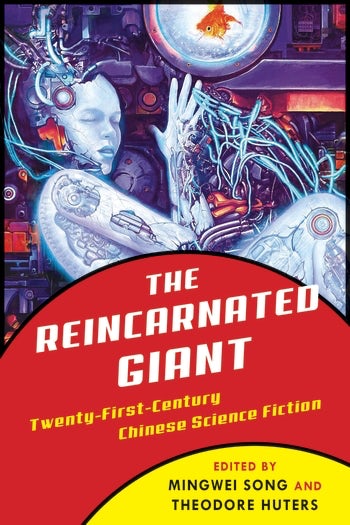Interview with Dung Kai-cheung
Earlier this summer, Dung Kai-cheung, author of Atlas: The Archaeology of an Imaginary City was interviewed by Christopher Mattison in a wide-ranging discussion. Among the issues discussed were translation, the impact of English on Dung’s writing, Hong Kong as a “fiction,” and Hong Kong literature.
The interview begins with a conversation about the translation of Atlas, which was both self-translated and done in collaboration with Bonnie McDougall and Anders Hanson. Dung mentions how his knowledge of English shapes and benefits how his Chinese writing is translated:
The influence [of English] is not just in terms of subject matter and literary forms but also of sentence structure and diction. My Chinese has been regarded by some language purists as “Europeanized,” which is meant to be a criticism for not writing in a proper Chinese. It is in this sense that I said the language of Atlas “lends itself to translation.”
Moving on to Hong Kong itself, Dung views the city as a fiction, an idea that shapes his “archaeology of an imaginary city.” Dung explains:
The truth is, Hong Kong was created by the British, at least at the very outset. I am not placing a value on that; it is simply a fact. And the fictitious or created nature of Hong Kong has its advantages. It has made this city wonderfully open to change and innovation. It is mirrored in the creativity of its people. Ironically, this advantage has been on the decline since the return of Hong Kong to China, a historical event which was supposed to have ended the city’s rootlessness.
Dung’s work has been compared to that of Borges and Calvino but as Dung explains how his work has also been shaped by recent Chinese writing particularly from Hong Kong and Taiwanese authors:
I am indebted to many Hong Kong writers of the older generation who, before me, had already been engaged with such a social, cultural and linguistic milieu. Liu Yi Chang, Leung Ping Kwan and Xi Xi are the most important sources of inspiration and models for aspiration. Their works are representative of Hong Kong literature in terms of language, literary forms and subject matter. They embody the awareness of and concern for Hong Kong as a distinctive locality of living and existing in its own right and thus its literature as a self-building and self-representing practice.
Dung concludes by exploring some of the characteristics that define Hong Kong literature:
Hong Kong literature never rests on the merely collective or the merely individualistic. It is always in a relationship between the two. This relationship is never simple and is often full of tension, but it is at the heart of the dynamics of Hong Kong literature. The most representative work in this respect is Xi Xi’s novel My City, first published in 1975. The title itself already suggests the duality of the individual and the city…. It is a relationship of mutual belonging. It is this mutual belongingness that accounts for the intimate and yet panoramic representation of Hong Kong in its literature.



